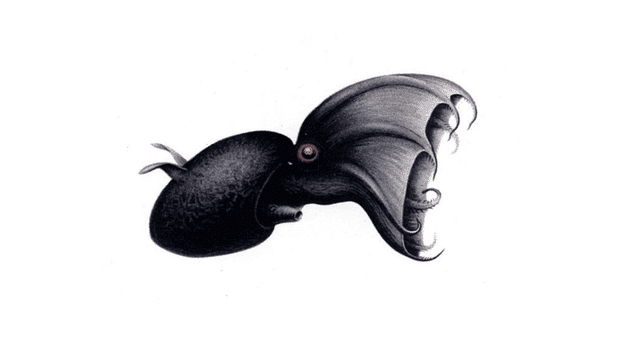
1. Vampire Squid’s Never-Seen-Before Species Discovered, Scientists Surprised
China — Scientists have found a second known living species of the vampire squid swimming in deep waters off Hainan Island in China. They are primarily found in temperate and tropical ocean environments across various regions worldwide. The first vampire squid was discovered around 2,600 to 3,000 feet below the sea surface.
They are neither true squids nor octopuses and adapt extremely well to the harsh deep-sea environments. Most researchers believe the South China Sea provides the perfect environment for these creatures. These conditions help them survive in extremely low oxygen conditions. In the recent past, the South China Sea played an important role in global marine biodiversity. The presence of these creatures in the South China Sea showcases the need for deep conservation in this region.
Thank you for your generous gift that will help us continue the production of this weekly, free publication
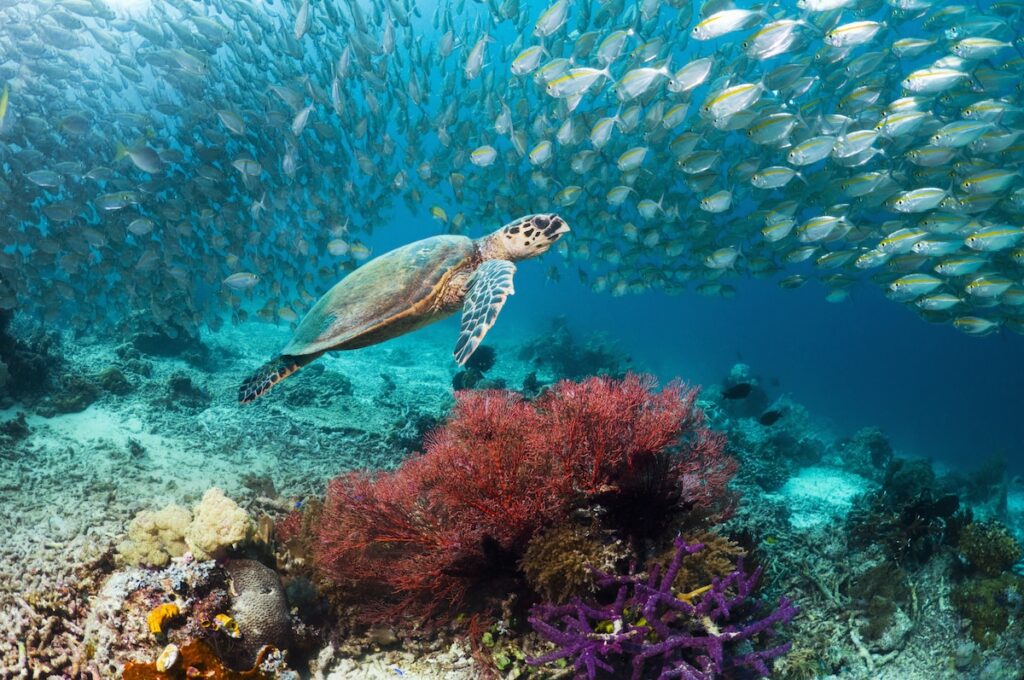
2. India to Sign Landmark ‘High Seas Treaty’ for Marine Conservation
India — The Union Cabinet has approved India’s proposal to sign the Biodiversity Beyond National Jurisdiction (BBNJ) Agreement, a significant step towards marine conservation in areas beyond national jurisdiction. The Ministry of Earth Sciences will oversee the implementation, aligning with global environmental efforts. Often known as the ‘High Seas,’ these areas are global commons accessible for legitimate international purposes like navigation and laying submarine cables.
The Ministry of Earth Sciences will lead the nation’s BBNJ Agreement execution, as confirmed in a press release. Science and Technology Minister Jitendra Singh emphasized India’s dedication to environmental conservation and sustainable development. “We are committed to signing and ratifying the BBNJ Agreement, upholding governance and the rule of law,” he stated.

3. Paving the Way to a Plastic-Free Philippines by 2040: The World Bank’s Strategic Roadmap
Philippines – The World Bank’s roadmap outlines a phased, evidence-based approach involving multiple stakeholders, including government agencies, the private sector, and civil society. The plan identifies four primary barriers to effective plastic waste management: policy and institutional gaps, analytical and infrastructure deficiencies, financial and funding shortfalls, and data and information limitations.
The roadmap proposes several key actions to address these barriers, such as strengthening regulatory frameworks, improving waste management infrastructure, integrating the informal waste sector, and enhancing data collection and transparency. Want to read about those “phased” goals? Short-Term Goals: Closing Leakage Pathways by 2028. Medium-Term Goals: Enabling Plastic Recycling by 2034. Long-Term Vision: Circular Economy by 2040 – You know what to do! Click the link below!
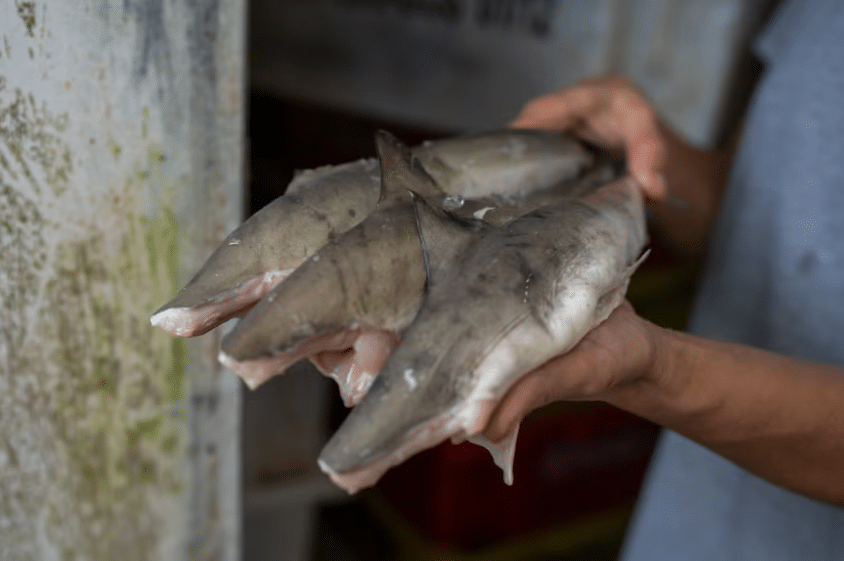
4. We Sell It in Secret, Like Drugs’: Brazil’s Appetite for Shark Meat Puts Species Under Threat
São Paulo State, Brazil — One of the biggest consumers in a global market worth an estimated £2bn (2.5B USD), trade in cheap fish in the South American country is booming. But worried conservationists say most people do not realise they are eating shark. The fact that few Brazilians realise they are eating shark has helped make it ubiquitous. While coastal people with a shark-eating tradition recognise the subtle differences in texture and flavour between shark species, to most Brazilians, it is just cação – a generic term under which shark and ray meat are sold.
Brazilian law prohibits fishing for sharks, but they can be landed as bycatch with few restrictions. The country’s tuna fleet often lands more significant amounts of shark than tuna. “Theoretically, it’s all within the realms of the law. But it’s a form of fishing that’s completely unregulated”.
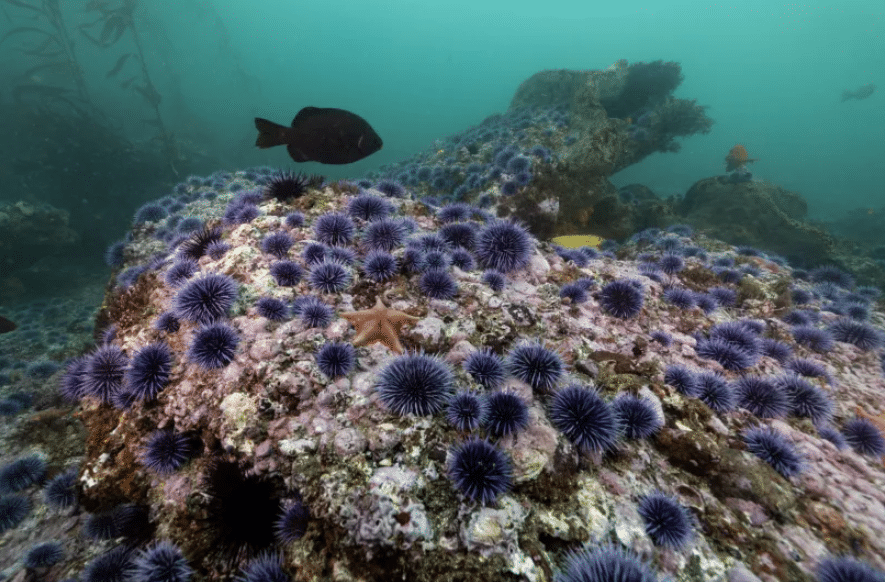
5. Scientists Want to Bring Back One of the Ocean’s Most Unexpected Predators
There are almost 2,000 species of sea stars or “starfish” worldwide. About a decade ago, the still-mysterious sea star wasting disease had devastating impacts on sea star populations along the West Coast of North America. One of the most brutal hit was the Sunflower Star Pycnopodia helianthoides. Ten years ago, the sunflower sea star population collapsed. This loss has been detrimental to kelp forests because sunflower stars are voracious sea urchin predators.
Scientists and aquarists created the Roadmap to Recovery for the Sunflower Sea Star. Thanks to endeavors in the star’s historic home along the West Coast and beyond, the sea star may return to the ocean one day. It’s the beginning of a lengthy restoration effort, but “there’s an understanding or a passion [for Pycnos],” says Ashley Kidd, conservation aquaculture program manager at the Sunflower Star Laboratory.
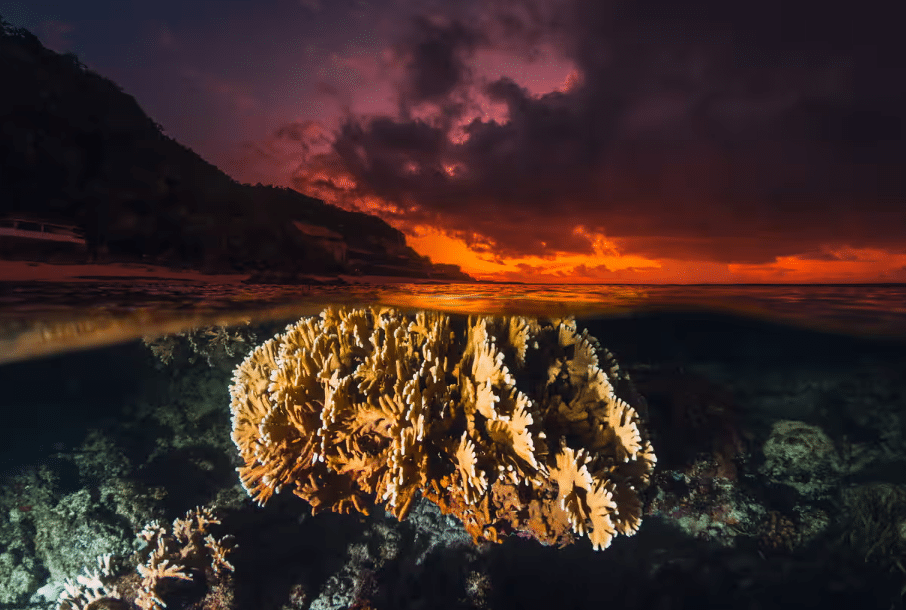
6. Artificial Light on Coastlines Lures Small Fish to Their Doom
It has long been established that light pollution hampers people’s ability to see the night sky and harms migrating birds, insects, and other animals. But its impact on marine ecosystems has rarely been considered, said Jules Schligler, the lead author of a study at the international coral ecosystem research centre in Mo’orea, French Polynesia. According to the study, artificial light shining from coastlines around the world is acting like “a midnight fridge,” threatening young fish who can be drawn to it and then eaten by predators attracted by the brightness.
“The coral with the [artificial] light is a bad environment for the larval fish because there are more predators, opportunistic fish passing by, that ate them,” Schligler told the Guardian. The findings, he said, meant artificial light should be seen as “another threat to marine animal populations and coastal ecosystems.”
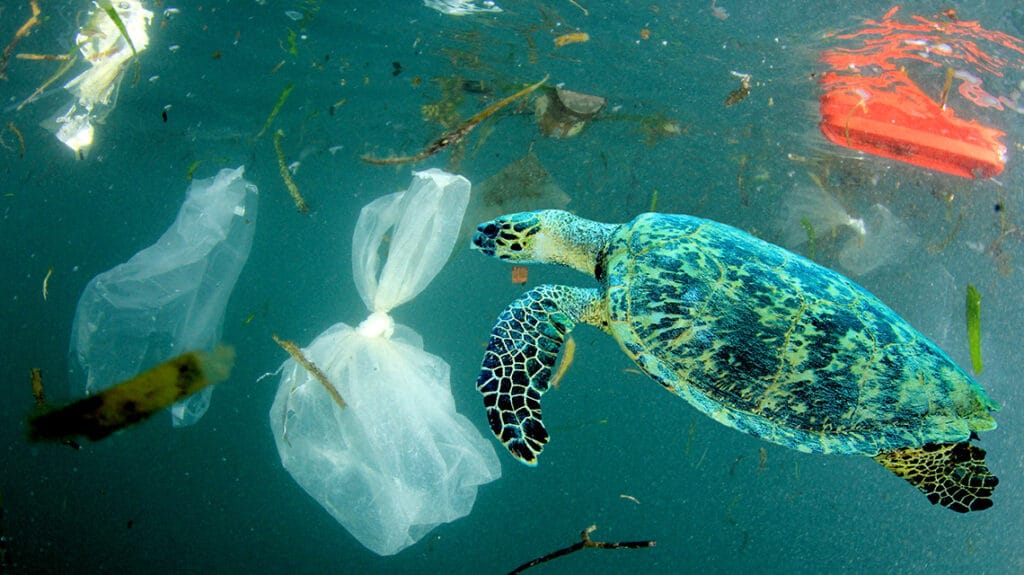
7. International Experts Convene to Advance Monitoring of Marine Microplastic Pollution
VIENNA — Experts in the fight against plastic pollution will meet to develop an international network of high-tech laboratories that can monitor marine microplastics and examine other progress made under the International Atomic Energy Agency’s (IAEA) Nuclear Technology for Controlling Plastic Pollution (NUTEC Plastics).
NUTEC Plastics aims to bring together private and public partners and donors from around the globe to tackle plastic pollution by applying nuclear and isotopic techniques, which can be used to understand the origin, movement, and impact of microplastics on the marine environment. The project also aims to develop agreed-upon protocols for marine monitoring, build specific national capacities to report on the status and trends of plastic pollution in coastal and marine zones, and report the densities and types of microplastics found on beaches and seawater.
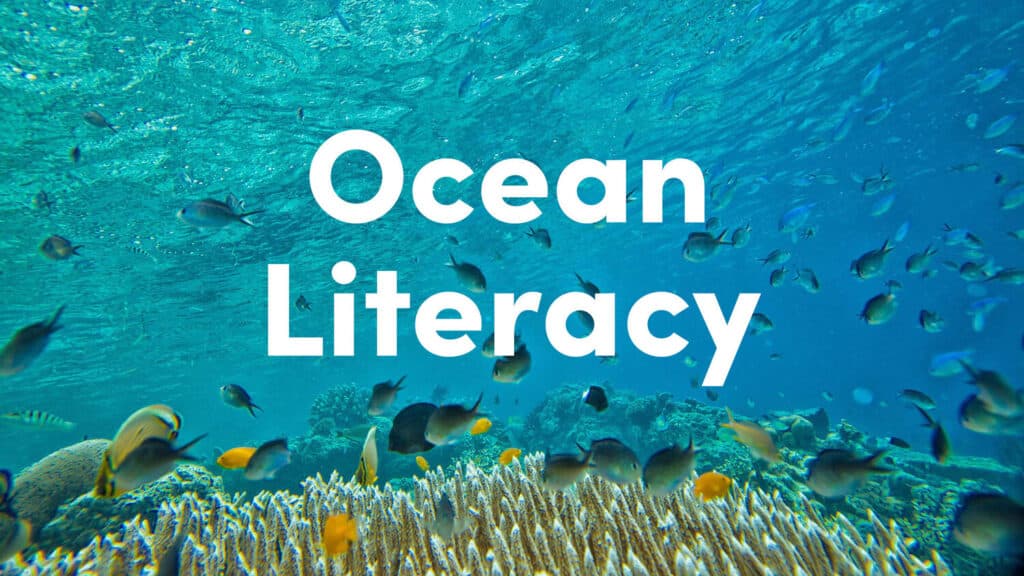
8. Workshop Held for Teachers on Ocean Literacy
Ramanathapuram, India — The Central Marine Fisheries Research Institute (CMFRI) conducted a three-day educators’ workshop on ocean literacy for government school teachers across the Ramanathapuram district. The workshop aimed to equip teachers with the knowledge and tools needed to integrate marine biodiversity and ocean conservation into their curriculum and use activities and experiential learning from a manual produced and published by the Zoological Outreach Organization.
The manual encourages educators to use Rameswaram’s diverse ecosystems as a living classroom for their students. The workshop participants and their students will organize an exhibition in the last week of August.
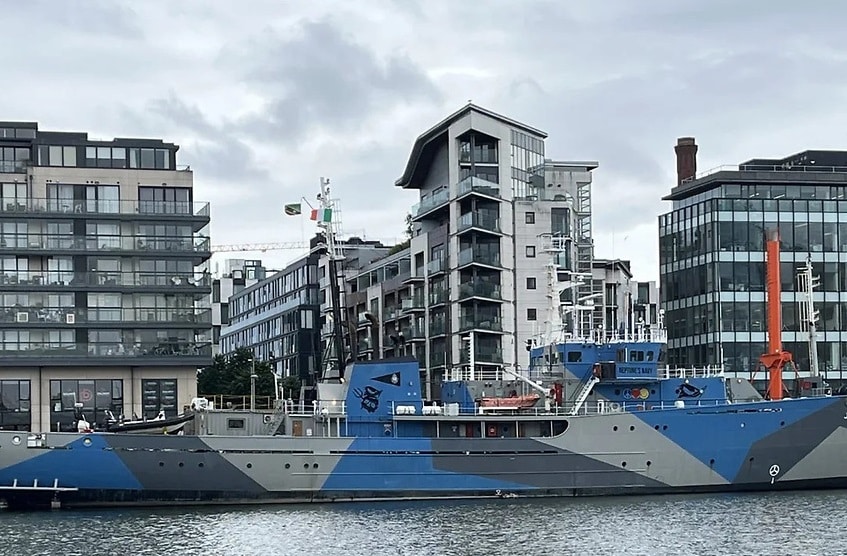
9. Dublin Based Anti-Whaling Ship Intends to Disrupt Icelandic Whalers
Dublin Port, Ireland – An anti-whaling campaign ship berthed in Dublin Port has become the launch pad for a new whale rescue mission run by a charity dedicated to stopping whaling. At Sir John Rogerson’s Quay, the Captain Paul Watson Foundation has berthed its ship, the John Paul De Joria. It is in response to Iceland’s controversial decision to grant that country’s last whaler a fresh license.
According to the foundation, its crew and volunteers can sail the ship to Icelandic waters quickly from Dublin if they get word that the killing season is to begin. The foundation’s current North Atlantic campaign has been named ‘Operation Ice Storm.’ The foundation uses “direct non-aggressive action” tactics to disrupt whaling, sailing into the path of whaling boats, preventing equipment loading, and blocking refueling.
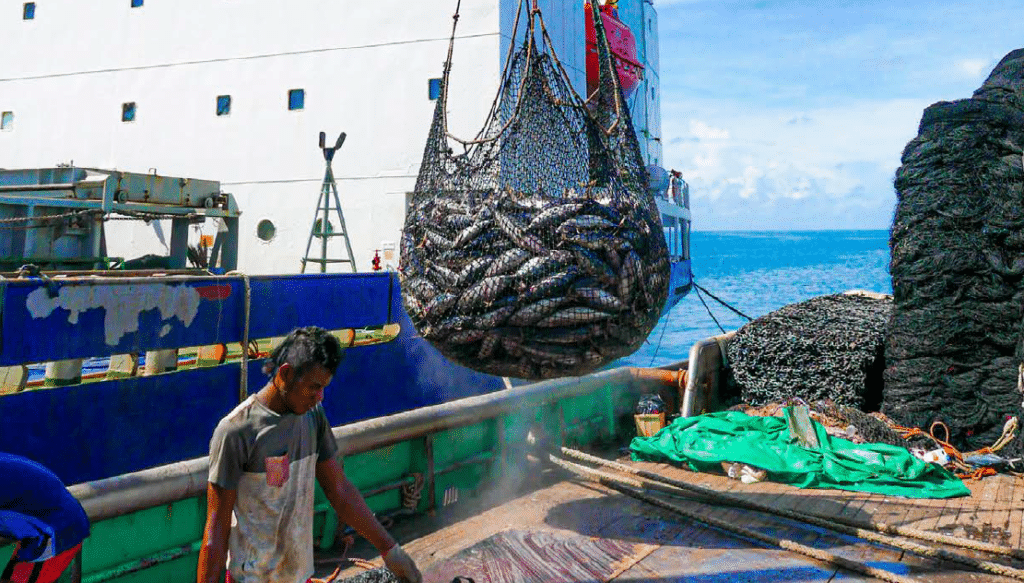
10. Pacific Islands Work Towards Improving Labour Conditions in Fisheries
Recognising the vital role of fishing in their livelihoods and economies, Pacific Island nations are taking decisive action to combat labour abuses and create a safer, fairer fishing industry.
Led by the Forum Fisheries Agency (FFA), officials and industry leaders gathered in Fiji to address critical issues like long hours, low pay, and unsafe working conditions faced by workers. The initiative, backed by the €45 million PEUMP program from the EU and Sweden as well as other international organisations like the International Labour Organisation (ILO), the International Organisation for Migration (IOM), and the United Nations Office on Drugs and Crime (UNODC), seeks to create a fairer, safer fishing sector that supports both livelihoods and economic growth in the region.
This comprehensive approach integrates efforts in oceanic and coastal fisheries, marine conservation, and community development, reflecting a commitment to sustainable management amidst challenges like climate change.
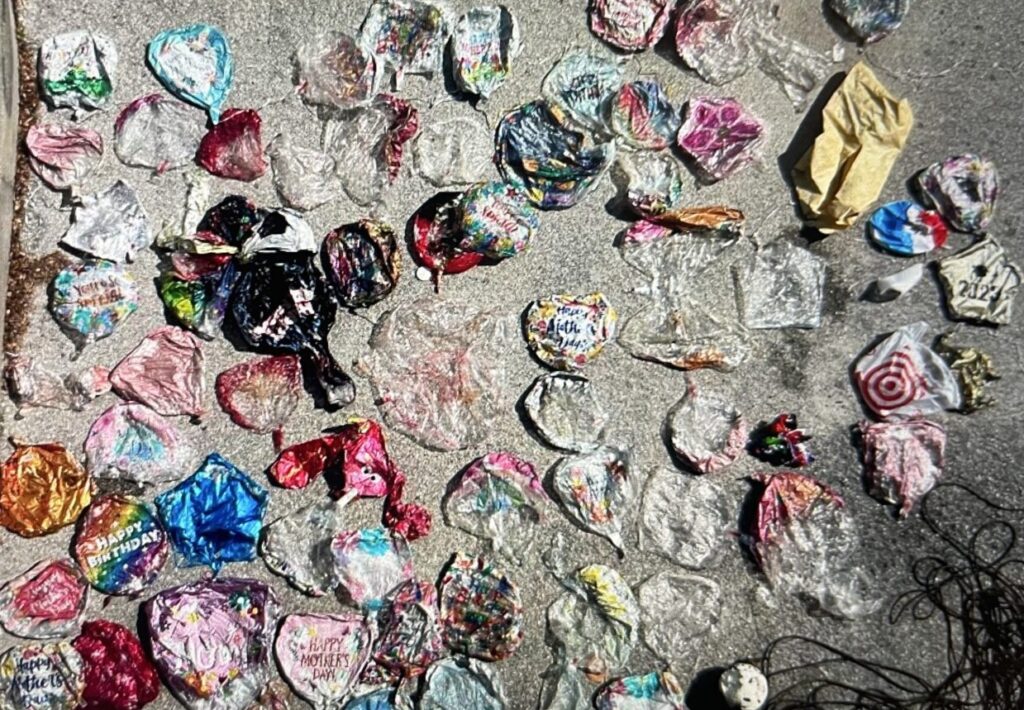
11. Dozens of Balloons Collected off Sarasota Coast, Researchers Warn of Plastic Pollution Danger
SARASOTA, Fla. — For five days straight, Dr. Randall Wells and his team with the Sarasota Dolphin Research Program, Brookfield Zoo Chicago, scooped not one or two but dozens of mylar balloons from the water. They picked up 76, to be exact. Balloons are used to celebrate occasions like Mother’s Day and birthdays.
Once they end up in waterways like Sarasota Bay or the Gulf of Mexico, they become a danger to wildlife. Last fall, a whale calf died off the coast of North Carolina. Biologists found a crumpled mylar balloon, which impacted its ability to digest and led to starvation. A new Florida law that took effect July 1 bans the intentional release of balloons. Dr. Wells said it’s a step in the right direction toward protecting sea life for future generations.
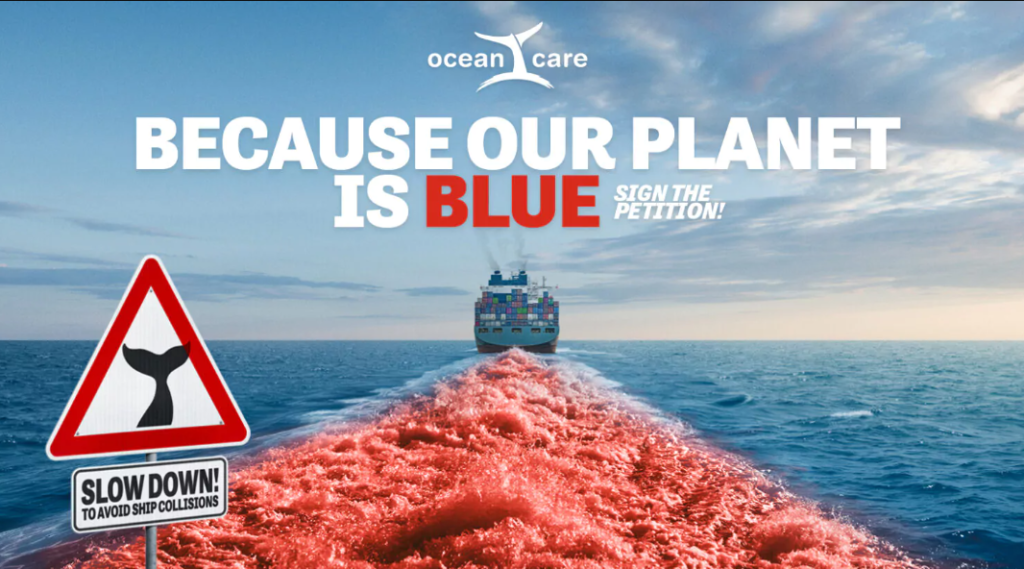
12. New Data Confirms: Limiting Ship Speed Is Necessary to Prevent Extinction of Great Whales in the North-Western Mediterranean
The Northwestern Mediterranean Sea — Keeping vessel speeds below 10 knots is the only effective way to avoid the risk of fatal collisions with endangered whales in areas such as the Particularly Sensitive Sea Area (PSSA) in the Northwestern Mediterranean Sea, where adjusting ship routes is not a practically feasible option. The north-western Mediterranean Sea is home to fin and sperm whales, both subpopulations in the Mediterranean Sea listed as endangered in the IUCN Red List of Threatened Species.
Ship strikes are the leading single cause of human-induced death for these whales. Adjusting shipping routes is not a risk mitigation option here, as the whales use the entire area randomly, and their presence is difficult to predict. Due to their low reproduction rate, avoiding every fatal collision is essential to protect them.
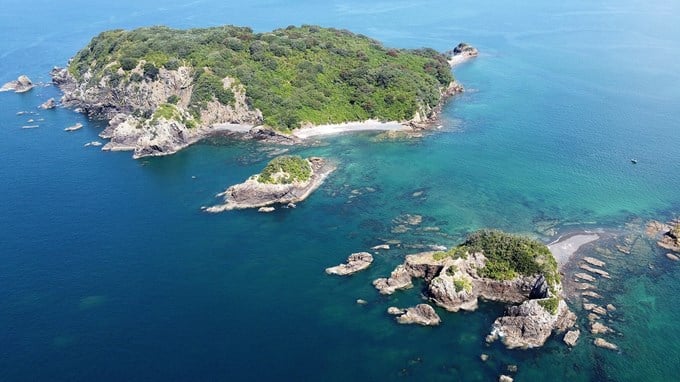
13. Waiheke Board Backs Marine Protection Bill
Hauraki Gulf, New Zealand – Protection of the Hauraki Gulf has taken a positive step forward in line with the Waiheke Local Board’s commitment to supporting the Hauraki Gulf / Tīkapa Moana Marine Protection Bill as part of its Local Board Agreement. Local board Chair Cath Handley says the bill has the potential to put essential protections in place for the gulf. “The bill has passed the first hearing with cross-party support.
This is a huge step in the right direction for the unique marine environments that we have around us, especially with the large boundary for a new marine protected area around the Ōtata/Noises Islands that would protect entire reef systems for future generations,” Handley says. “We’ve heard from Waiheke residents time and again that protecting our marine environment is a priority, and that’s why we will continue to advocate for projections like this.
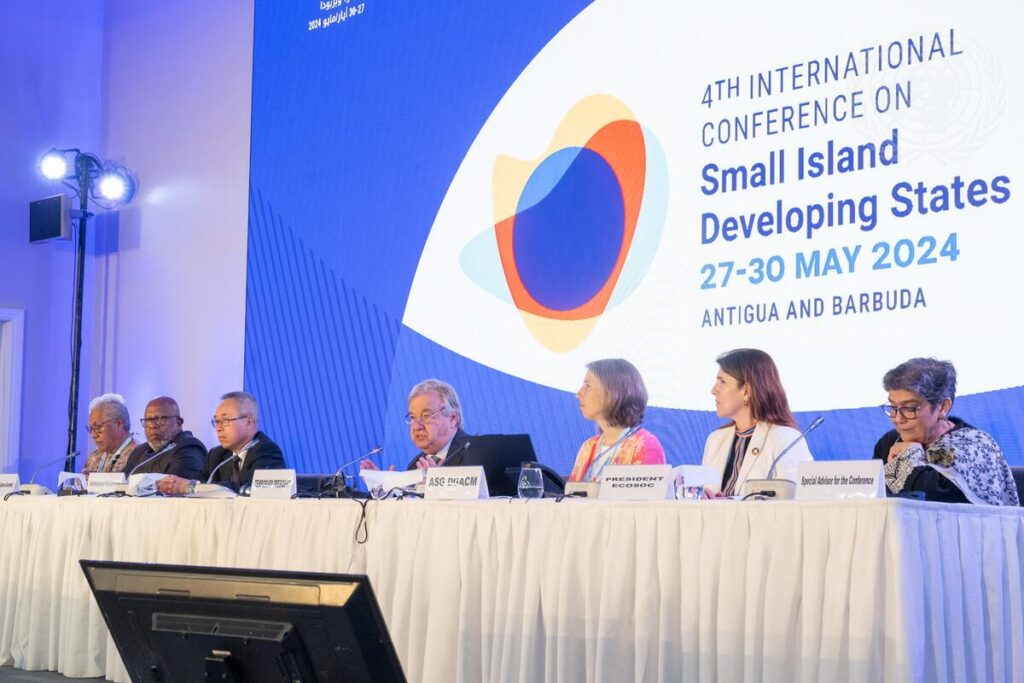
14. Israel Should Help Small Island Developing States (SIDS) on Climate Change
Spread across the Caribbean, Pacific, and Indian Oceans, Small Island Developing States (SIDS) are exceptionally vulnerable to the ravages of climate change. Rising sea levels, intensifying storms, and deteriorating marine ecosystems threaten their existence. With its innovative climate technologies, Israel is positioned to be a crucial ally in helping SIDS combat these challenges. Israel stands at the forefront of cutting-edge technology in water management, agriculture, and renewable energy—areas where SIDS face critical challenges.
Israel’s desalination and water recycling technologies could be lifesaving for SIDS grappling with freshwater scarcity. Likewise, Israel’s expertise in solar energy can help these island nations harness their abundant sunlight. The 2024 UN Climate Change Conference will convene from November 11 to 22 in Baku, Azerbaijan. Azerbaijani President Ilham Aliyev has said that addressing the challenges posed by climate change to SIDS will be among the priorities of his country’s COP29 Presidency.”
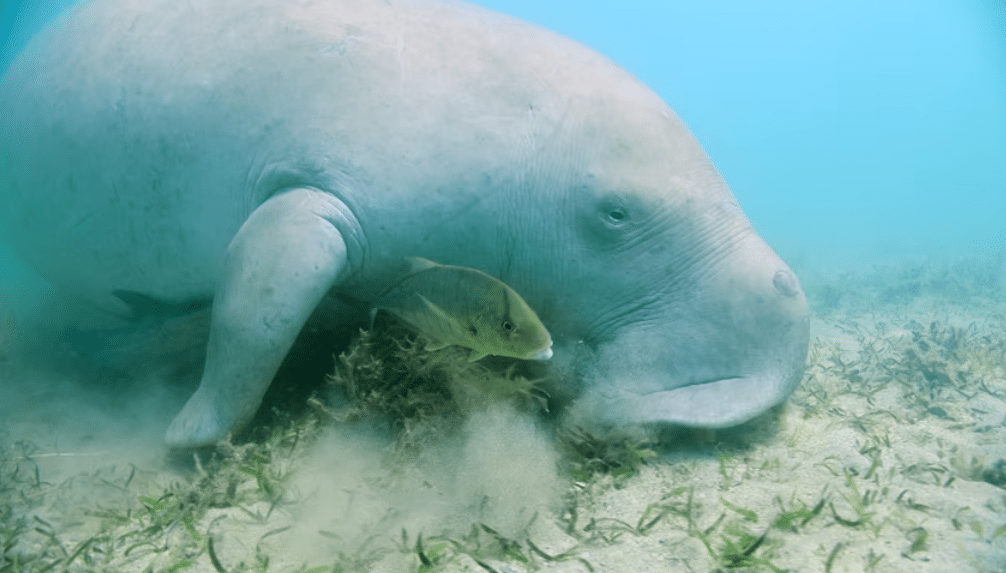
15. Efforts Underway to Determine Vanuatu’s Dugong Population
Vanuatu — Dugongs, marine mammals and cousins of manatees, were once a common sight around Vanuatu’s Efate island in the South Pacific. Now, they are rarely seen, and conservationists are calling for a study to find out exactly how many still roam the waters of Vanuatu. There’s uncertainty as to whether dugong populations are stable or in decline.
Dugong populations have been declining in areas like New Caledonia due to problems like fishing nets and the disappearance of food sources, such as seagrass. “We don’t know if they’re dropping or not, and that’s a problem,” said Christina Shaw, the CEO of the Vanuatu Environmental Science Society. “Dugongs are not the easiest animals to research … they’re in the sea and travel long distances, so the best way is through aerial surveys.”
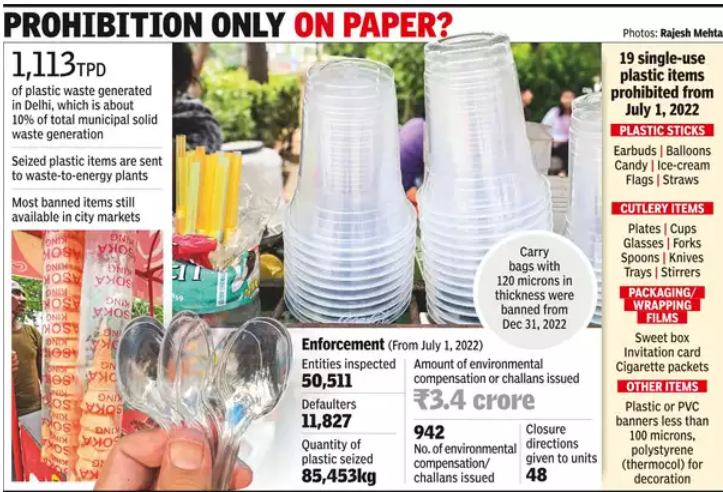
16. Banned Single-Use Plastic Items Still Flooding Shops in Delhi
NEW DELHI — It has been two years since the ban on 19 single-use plastic items came into effect in the city. However, the ban exists only on paper. Due to the poor supply of alternatives in the city, improper enforcement, and inadequate awareness drives, banned items are still widely available. Banned plastic cutlery, including plates, glasses, spoons, straws, and forks, can be seen everywhere.
Around 1,113.2 tonnes of plastic waste is generated in Delhi every day. According to data from the Delhi Pollution Control Committee, this is about 10% of the total municipal solid waste generation. Experts emphasised that bridging the gap between demand and supply of affordable alternatives will help phase out banned single-use plastic items. About 99% of restaurants in Connaught Place have switched to alternatives to banned items, but street vendors continue to use them as they cannot afford expensive options.
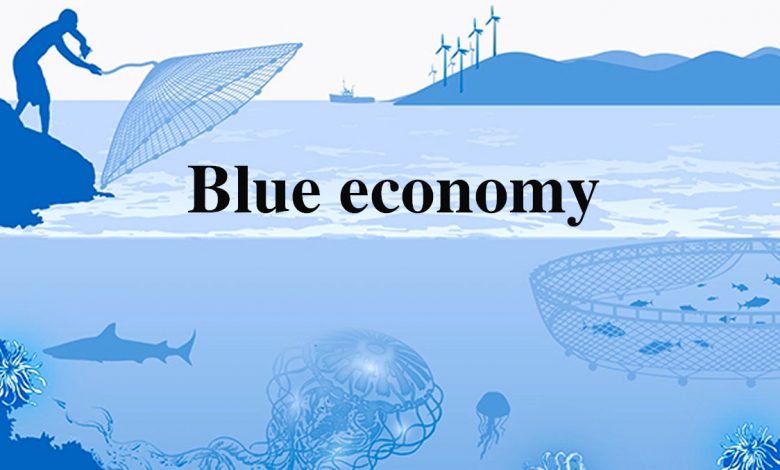
17. Experts Want Nigerian Fisheries Placed Under Ministry of Marine and Blue Economy
LAGOS, Nigeria — Stakeholders at the first annual Conference of the Alumni Association of Federal College of Fisheries and Marine Technology (FCFMT) said Nigerian fisheries should be under the jurisdiction of the Blue Economy Ministry rather than the Agriculture Ministry. A fisheries expert and Chief Executive Officer of Ocean Deep Maritime Services Ltd., Mrs. Rollens Macfoy, observed that the placement of fisheries institutions under the Ministry of Agriculture limits the sector’s development.
Macfoy, in her paper titled: “Aligning Fisheries and Marine Technology with Nigeria’s Blue Economy Agenda: Sustainability Policy Framework and The Importance of the Alumni of the FCFMT,” stressed the need for grants, flexible loans, tax holidays, among other incentives, to position fishing for economic boom. According to her, youth employment and gross domestic product (GDP) are definite gains the nation would benefit from by giving adequate attention to the sector.
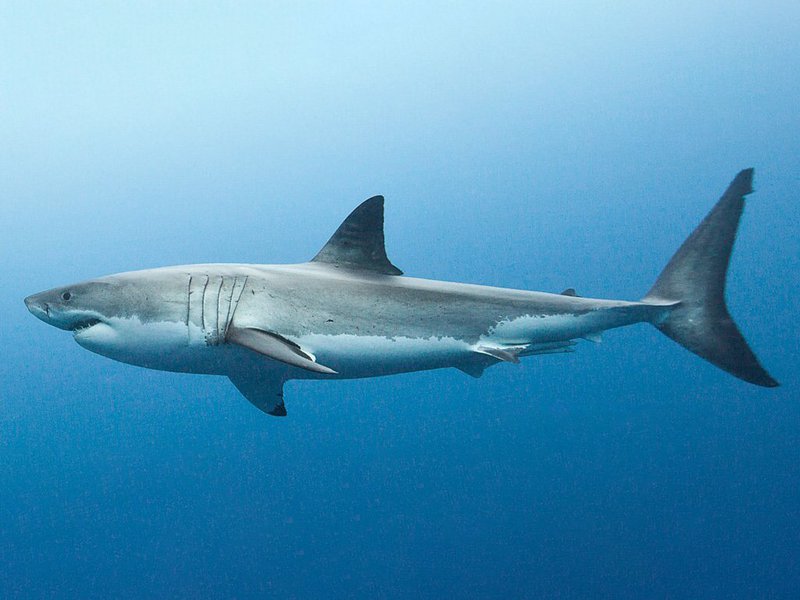
18. ‘Shark Week’ Delivers Enough Scares to Keep You out of the Ocean
“Shark Week” on the Discovery Channel runs for a week every summer and has been on the air since 1988. Starting on Sunday, July 7, the annual celebration and investigation of shark habits and behaviors kicks off with “Belly of the Beast: Bigger and Bloodier,” one of last year’s most popular shows. Each night brings a new and fascinating topic. For example, the second night recounts three fatal Great White Shark attacks that occurred off a small Mexican fishing village.
On Friday, “The Real Sharkano” has shark advocate and attack survivor Paul De Gelder visiting an ultra-remote island of shark-worshiping natives to see if their secret ways of swimming with deadly sharks hold the secret to humans and sharks living together in peace. Discovery is not alone in the “shark” game. National Geographic has celebrated sharks for over two decades with their annual “Sharkfest” summer event.
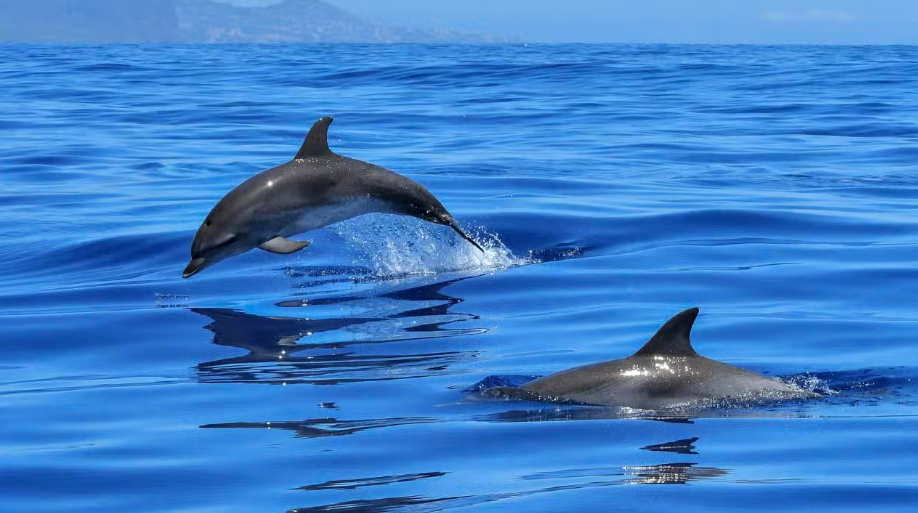
19. Even in Death, Dolphins Still Boost Human Understanding
MANILA, Philippines — As marine mammal strandings increase in the Philippines, scientists and veterinarians are turning dolphin deaths into opportunities for critical research and conservation efforts. At a recent workshop held at the University of the Philippines in Diliman, experts emphasized that while the death of a stranded dolphin is “disheartening,” it provides valuable data to understand cetacean diseases and the impact of human activities on marine life.
“We conduct these sorts of training to build the capacity of local government units and concerned agencies in their marine mammal rehabilitation and postmortem response,” said Dr. Lemnuel Aragones, head of the Marine Mammal Research and Conservation Laboratory and president of the Philippine Marine Mammal Stranding Network. The “Cetacean Pathology Training and Workshop,” held on June 24, brought together veterinarians from across the country to learn proper practices for documenting and studying dolphin diseases.
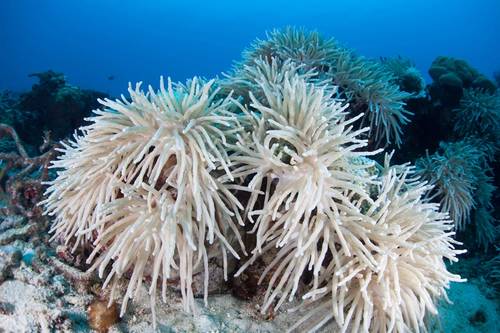
20. Coral Bleachings Devastate Bali Reefs as Sea Temperatures Rise
Indonesian conservationist Nyoman Sugiarto has been working for 16 years to preserve coral on the reefs of Bali, but the frequency of mass coral bleachings, he says, is now devastating. Ninety percent of the corals Sugiarto had nurtured on the reefs near his village in Bondalem, on the northern shore of Bali, lost their colour last December. “It was all white. We were shocked, and of course, it also negatively affected the coral we planted.
It’s not just the natural ones,” 51-year-old Sugiarto told Reuters. Indonesia has roughly 5.1 million hectares of coral reefs, accounting for 18% of the world’s total, as data from the country’s tourism ministry shows. However, Sugiarto says he is determined to continue his campaign to conserve corals, advocate coral conservation to younger Indonesians, and seek funds to establish a village community to monitor illegal fishing.
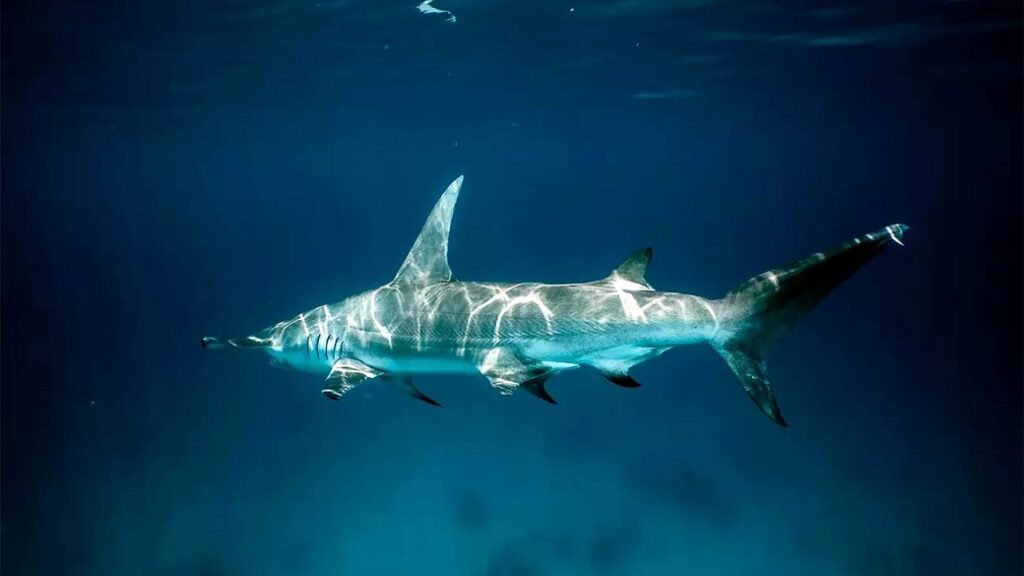
21. New Report Spotlights Latin America and Caribbean’s Role in Shark Trade
WASHINGTON, DC – A new report by IFAW reveals Latin America’s dual role in the global shark trade as a significant supplier of shark fin products to Asian markets and the primary consumer of shark meat from Asia. Countries in regions like Uruguay, Brazil, and Mexico have received 58% of shark meat exports from Hong Kong, Singapore, and Taiwan. Conversely, Latin American nations, like Costa Rica, Peru, and Mexico, exported 30,000 metric tons of shark fin products to Asia.
The report highlights discrepancies in trade data, emphasizing the need for improved transparency among countries to combat illegal trade and protect endangered sharks. With over 90% of the global shark fin trade now under the Convention on International Trade in Endangered Species (CITES) regulations, the report urges enhanced data management and enforcement measures.
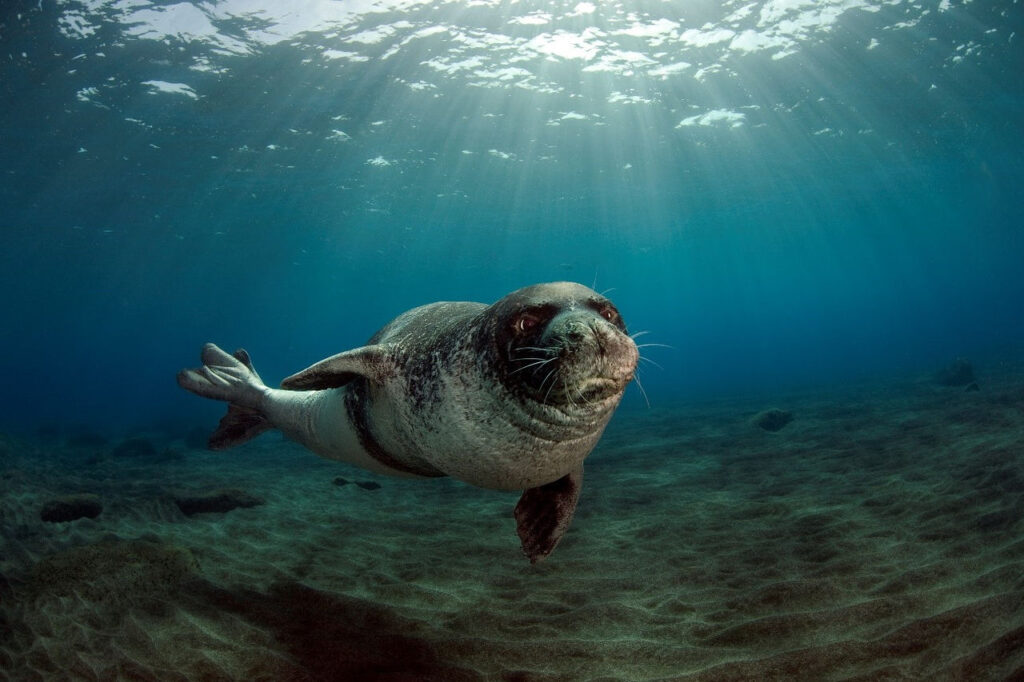
22. Rare Monk Seal Caught Napping off Maltese Coast
In a heartwarming image, a Mediterranean monk seal was spotted taking a leisurely nap in Maltese waters, marking a significant moment for local marine conservation efforts. This is the first official sighting recorded in Maltese waters since the late 1990s; environmentalists and locals are ecstatic. The species is critically endangered, with a global population estimated at less than 1,000 individuals.
Professor Alan Deidun, a marine biologist, hailed the seal’s appearance as “a welcome return to our seas,” highlighting its vulnerability. The Environment and Resources Authority (ERA) has reminded the public that the monk seal is protected by law, with hefty fines for any disturbance or harm caused to these rare creatures. As Malta witnesses this unexpected visitor, it serves as a reminder of the importance of marine conservation and the potential for nature’s recovery when given the chance.




